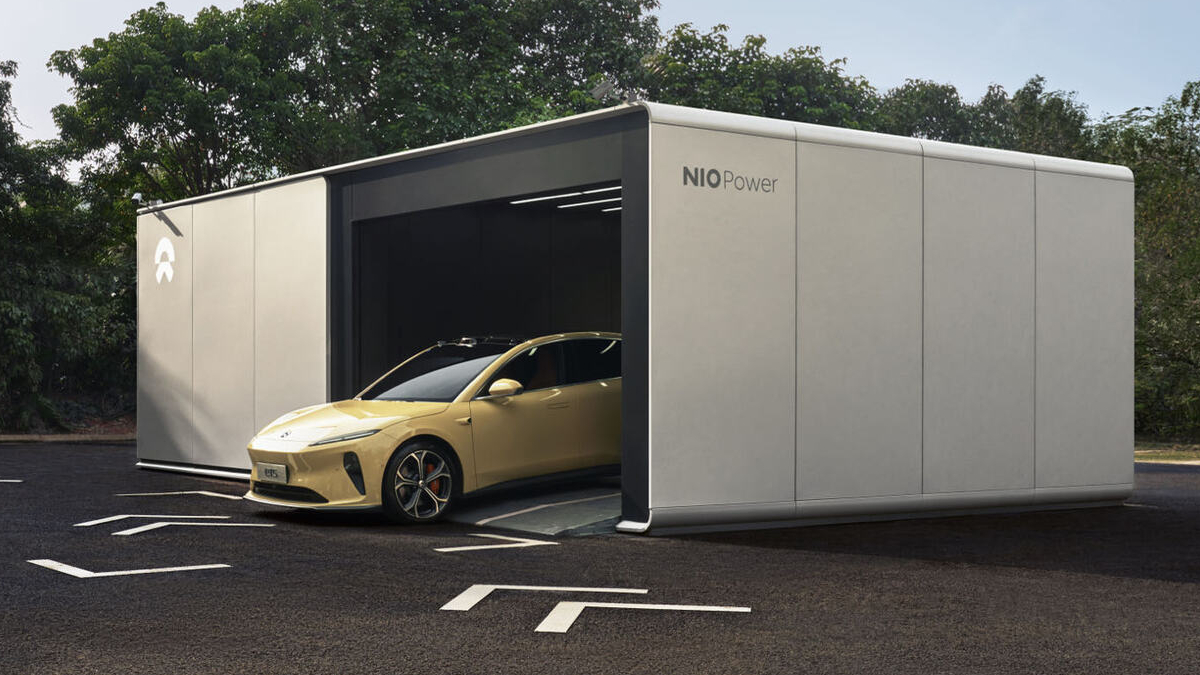Nio announced on Thursday that it has updated its battery leasing program to allow drivers to replace their battery packs with a higher energy density one daily rather than after months or years, as was previously the case.
The Chinese EV maker also reaffirmed an earlier commitment to expanding its battery swapping and supercharging network, as a way to showcase what it sees as the superior experience offered to Nio owners, including easy access to recharging ports.
Why it matters: The daily package may present new challenges for Nio, given its already large and dispersed power infrastructure deployment across China. Despite this, it is expected to draw in revenue as it offers greater convenience to users and lowers the purchase prices of Nio’s EVs, senior company executives told reporters at a press briefing in Beijing. Nio has recently experienced cashflow pressure amid slowing sales.
Details: Customers who currently have a 70/75 kilowatt-hour (kWh) battery pack for their Nio EVs may now swap the battery for a so-called “long-range” one (100kWh) for an extra fee of RMB 50 ($7) per day and will be able to return it to any Nio swap station in China.
- The service option is part of Nio’s Battery-as-a-Service (BaaS) leasing program, which was launched in August 2021 and has since allowed Nio owners to upgrade their batteries for longer driving ranges with a monthly and yearly fee of RMB 880 and RMB 9,800, respectively.
- In the last two years to Thursday, Nio has provided 80,000 upgrades, according to the company’s president Qin Lihong. He added that number could surge by “several hundred thousand” over the next year, as customers take advantage of the flexibility afforded by a longer driving range at a relatively low cost.
- Still, senior vice president Shen Fei acknowledged that the move could put the company under “exponential” pressure to operate its consistently growing swapping network when it comes to the transport and allocation of battery packs across the nation (our translation).
- He cited an extreme case in which 100 kWh battery packs could be in short supply during hot weather in Beijing as owners travel to summer resorts. “I believe we’re well prepared, but we haven’t foreseen all the potential problems with this,” said Shen.
- Qin reaffirmed Nio’s efforts to double its number of swap stations to more than 2,300 by the end of the year, adding that the company has established 500 ultra-fast chargers since April, with a maximum power output of 500 kW and a maximum current of 660A.
Context: Nio owns and operates one of the largest recharging networks in China with 1,564 swap stations and 16,745 public chargers as of Thursday. It has swapped over 25 million EV battery packs, meaning a Nio car is starting up with a replenished battery pack every 1.6 seconds, said Qin.
- The automaker faced cashflow issues until recently when Abu Dhabi’s CYVN Holdings provided relief with a $1.1 billion investment. As a result it has scaled back production of its proprietary EV batteries. It cut prices of its vehicle lineups by RMB 30,000 ($4,199) on June 12, with year-to-date deliveries growing by 7.3% to 54,561 units as of June.
READ MORE: Nio bets big on battery swap stations amid growing EV price war

